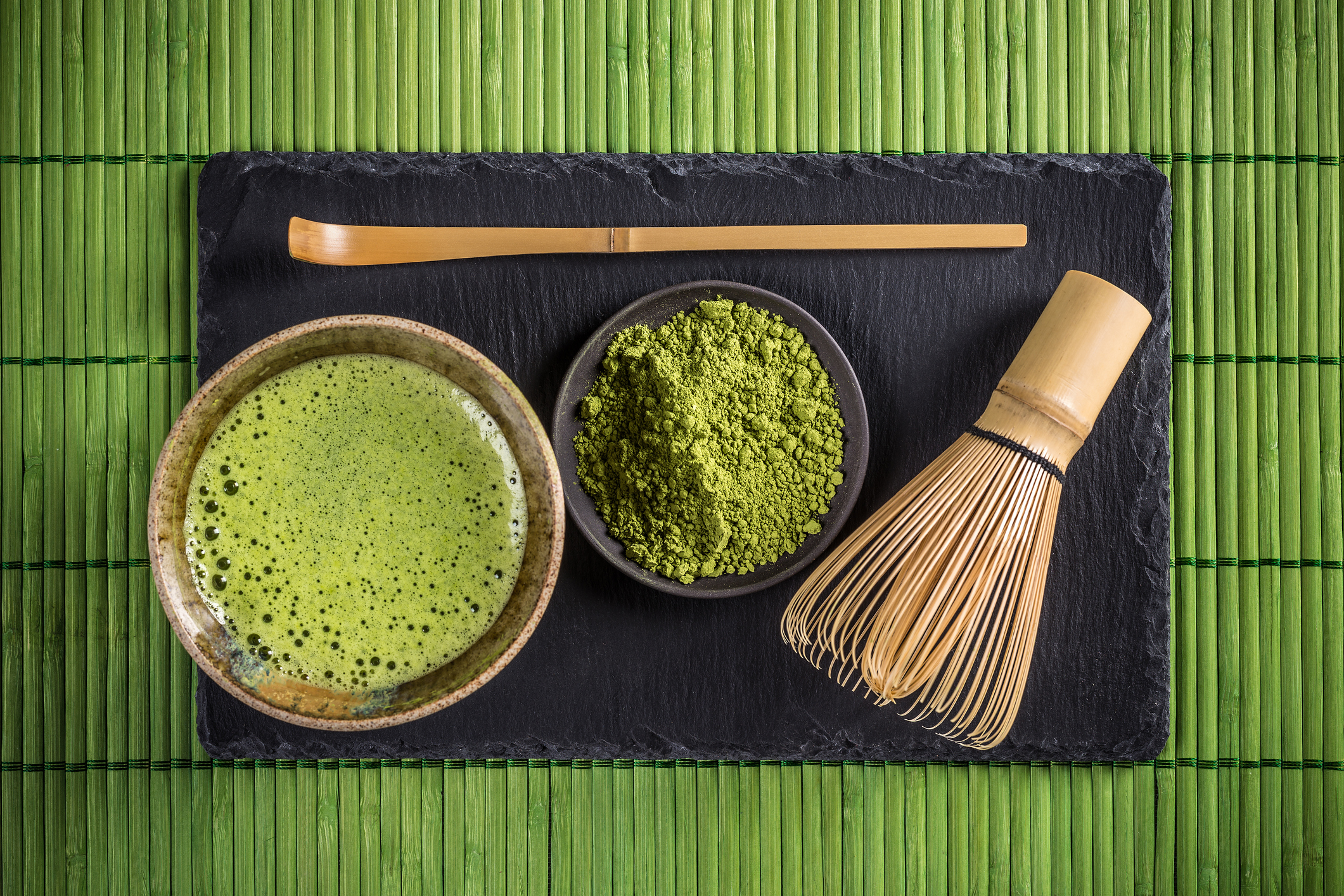Matcha possesses a range of advantages for women with PCOS due to its versatility as an ingredient. The distinctive blend of antioxidants, caffeine and amino acids it contains, makes it a valuable inclusion in a balanced diet.
Understanding PCOS
Polycystic ovary syndrome is a complex hormonal/endocrinological disorder that has effects on the reproductive, metabolic and psychological aspects of an individual. The precise cause of this condition remains unknown; however, it’s believed to arise from an interplay of genetic and environmental influences. Common symptoms encompass irregular menstrual cycles, excessive facial hair growth, acne, scalp hair loss and weight gain.
Managing PCOS can be challenging and usually needs lifestyle modification, dietary changes, exercise, stress management and sleep cycle regulation. The above being the main correction, other pharmacological approaches consist of employing birth control pills to establish menstrual regularity, metformin to mitigate diabetes risk and decrease insulin resistance, statins to reduce elevated cholesterol levels, antiandrogen medications to control excessive male hormone and ovulation induction drugs to enhance fertility chances.
What Is Matcha?
Matcha has gained popularity in health stores and coffee shops, where it can be found in various forms such as matcha shots, lattes, teas and desserts. Derived from the Camellia sinensis plant, just like green tea, matcha distinguishes itself through distinct cultivation techniques and unique nutritional composition.
During the growth period, farmers deliberately shield the plants designated for matcha from direct sunlight. This method enhances the production of chlorophyll, amplifies the amino acid content and imparts a deeper green color to the plant. Once the leaves are harvested, they undergo a process where stems and roots are removed, and the remaining leaves are ground into a finely textured powder, resulting in matcha.
Unlike regular green tea, matcha incorporates nutrients from the entire tea leaf and boasts higher levels of both caffeine and antioxidants. In-depth investigations into matcha and its constituents have unveiled a range of advantages, revealing its potential to safeguard the liver, support cardiovascular well-being and even contribute to weight management.
What Are the Health Benefits?
1. Improves Cardiovascular Health
One benefit of matcha is the abundance of micronutrients that are present in it, with a noteworthy presence of a particular compound called epigallocatechin-3-gallate (EGCG), known for its potential positive impact on health. Insights gleaned from research into EGCG’s influence on cardiovascular and metabolic well-being indicate a diverse spectrum of therapeutic attributes, encompassing anti-atherosclerotic, anti-cardiac hypertrophy, anti-myocardial infarction, anti-diabetic, anti-inflammatory and antioxidant properties.
A study featured in the Journal of Ethnopharmacology has mentioned that matcha contributes to promoting the optimal operation of the cardiovascular system, effectively deterring the accumulation of plaque, and thickening of heart tissue and mitigating conditions like heart attacks.
2. Rich in Antioxidants
Antioxidants play a crucial role in eliminating harmful molecules from the body, thereby reducing oxidative stress. Matcha is a type of green tea extract, and as a category, these are rich sources of components functioning as antioxidants, among which catechins hold prominence. A particular human study highlights that tea, including matcha, encompasses flavonoids, compounds recognized for their antioxidant attributes and wide-ranging positive impacts. These tea-derived flavonoids are associated with inflammation reduction, antimicrobial properties and the prevention of tooth decay.
3. Has Cancer-Fighting Effects
Numerous advantageous elements present in matcha have undergone scrutiny due to their potential anti-cancer attributes. High-quality studies have explored the link between green tea consumption and the reduction in the occurrence of gastric cancers. A notable example is a study featured in Cancer Causes & Control, encompassing a participant pool of more than 1,400 individuals, which revealed a connection between green tea consumption and a diminished risk of stomach cancer.
Catechins and gallic acid, two phytochemicals found in matcha, have been integrated into investigations alongside chemotherapy treatments to assess their potential for enhancing the effectiveness of specific chemotherapy drugs.
4. Aids Weight Loss
As per the National Institute for Health, green tea is reported to heighten energy expenditure and fat oxidation while diminishing the processes of lipogenesis and fat absorption. Additionally, it is noted to potentially have a slight impact on body weight. A clinical trial conducted on 76 overweight participants over four months and documented in the journal Obesity revealed that the regular intake of green tea beverages contributes to weight loss.
5. Makes Skin Glowing and Healthy
Both matcha powder and green teas offer benefits beyond internal health, extending to the enhancement of skin well-being. The components present in green tea have the potential to serve as effective topical agents in promoting skin regeneration, aiding in wound healing and addressing specific epithelial conditions such as aphthous ulcers, psoriasis, rosacea and actinic keratosis. The Food Research International study underscores the potential of green tea constituents for these purposes.
How Matcha Green Tea Helps Manage PCOS Symptoms
- Possessing anti-inflammatory characteristics: Matcha includes catechins, a class of antioxidants recognized for their robust anti-inflammatory effects. This holds particular significance for women dealing with PCOS, as persistent inflammation is a prevalent aspect of the condition. Through its inflammation-reducing attributes, matcha has the potential to mitigate certain PCOS symptoms, including acne and irregularities in the menstrual cycle.
- Enhances insulin sensitivity: PCOS is characterized by insulin resistance, a pivotal factor associated with various health complications like type 2 diabetes and cardiovascular disorders. Research indicates that matcha can enhance insulin sensitivity, thereby facilitating more efficient insulin utilization within the body. This effect can diminish the likelihood of type 2 diabetes development and contribute to enhancing overall metabolic well-being.
- Balances blood sugar levels: Evidence suggests that matcha possesses the capability to balance blood sugar levels, a particularly vital attribute for individuals managing PCOS. Elevated blood sugar levels can exacerbate insulin resistance, contributing to various health complications. Through its blood sugar regulation effects, matcha can contribute to enhanced insulin sensitivity and a decreased risk of type 2 diabetes.
- Facilitates weight loss: Sustaining a healthy weight holds significant importance for individuals dealing with PCOS, given that surplus weight can exacerbate symptoms like insulin resistance. Matcha has demonstrated its potential to aid in weight loss through mechanisms such as heightened metabolism and appetite suppression. Furthermore, its catechin content can contribute to diminishing the accumulation of body fat.
- Enhances heart health: PCOS heightens the likelihood of cardiovascular disease, a prominent cause of mortality among affected women. Matcha can potentially enhance cardiovascular well-being by mitigating inflammation, enhancing insulin sensitivity and fostering weight loss. Its antioxidant content further aids in shielding against oxidative stress, which could otherwise harm blood vessels and elevate the risk of heart-related issues.
How To Incorporate Matcha Into Your Diet
Matcha can be included in a PCOS diet in many ways. It can be taken as a beverage like tea or can be included in your breakfast options by adding it to your smoothies and cereals, pancakes, or crêpes. You can also make matcha-flavored desserts with less sugar or sugar substitutes.
Matcha Recipes
- Matcha Chia Pudding
Mix 2 Tbsp chia seeds, 1 cup almond milk, 1 tsp matcha powder and 1 to 2 tsp maple syrup. Blend or shake the mixture in a closed container until combined. Refrigerate overnight.
- Matcha Spice Blend
Mix matcha with spices like garlic powder, black pepper, paprika and sea salt to make a unique seasoning. You can add this to stir-fries, use it as a dry rub for meats, or shake it into scrambled eggs.
- Matcha Smoothie
Add 1 frozen banana, 1 cup unsweetened almond milk, 1 to 2 tsp honey and 1 to 2 tsp matcha, into a blender and purée until smooth.
- Matcha Frozen Yogurt
Mix matcha powder with plain yogurt and a drizzle of honey, and freeze in popsicle molds.
- Matcha Tea
Mix matcha powder into warm water and whisk it until frothy. You can add milk and sugar to this if you want.
Learn More With Veera
At Veera Health, we tailor your dietary regimen to align with your lifestyle and specific symptoms. Our PCOS specialists collaborate closely with you to create a personalized plan that addresses your unique needs, encompassing dietary choices, physical activity, sleep patterns and stress management. Initiate your journey by scheduling a complimentary consultation with our experts!


















